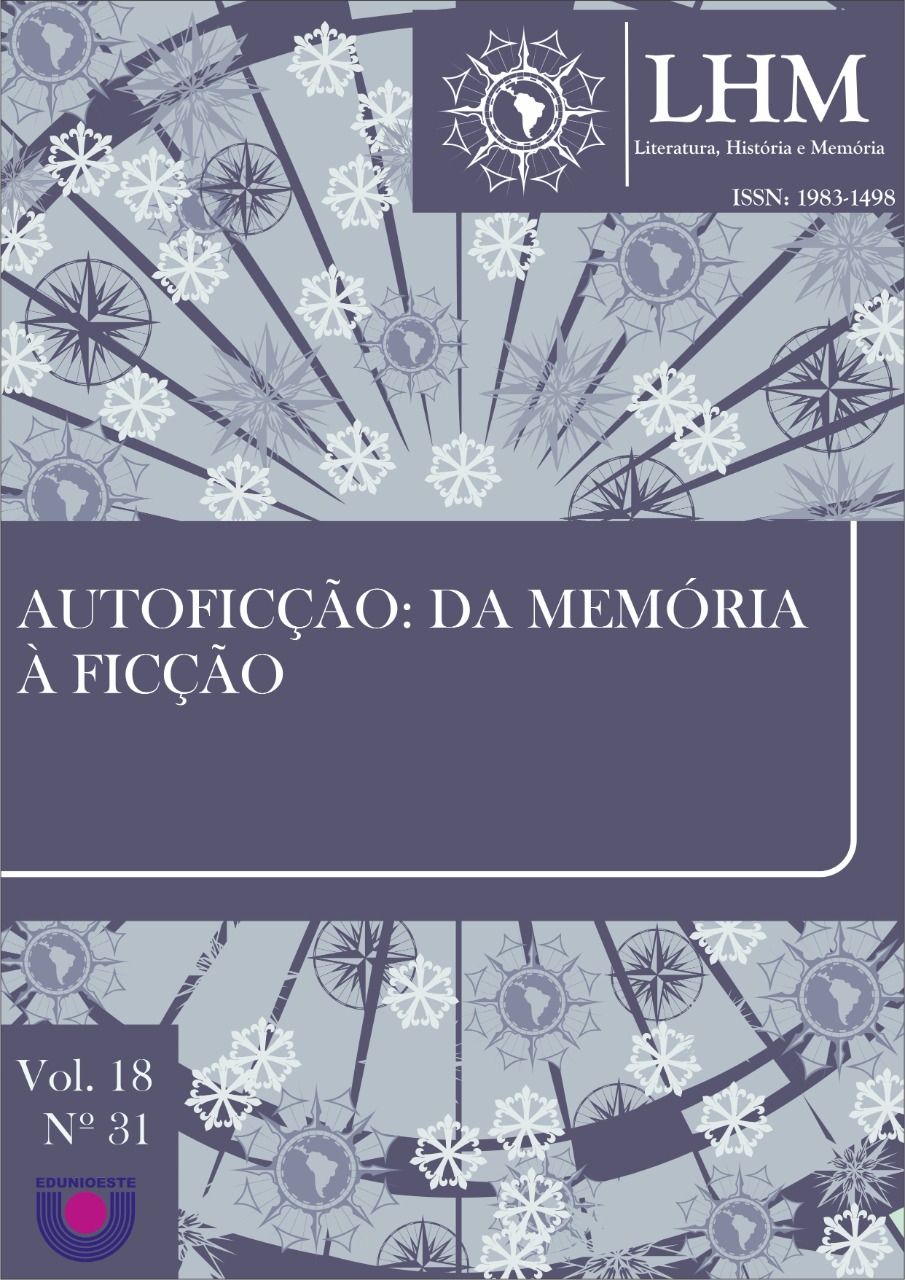"Livro do avesso: o pensamento de Edite", de Elisa Lucinda
um diálogo entre vozes sociais
DOI:
https://doi.org/10.48075/rlhm.v18i31.28067Palavras-chave:
Literatura afro-brasileira, Relações Dialógicas, Discurso, Mulher negra, Vozes sociais.Resumo
A literatura afro-brasileira tem como fulcro o desejo de fazer reverberar vozes que foram silenciadas ao longo de muitos anos. Nesse sentido, essa literatura vem se consolidando como forma de expressão ideológica e de pertencimento de um sujeito enunciador que ativa suas memórias para elucidar a história e a cultura de forma estética. Nesse contexto, trazemos para análise a obra afro-brasileira “Livro do Avesso - o pensamento de Edite”, da autora Elisa Lucinda. Assim, apresentamos alguns pontos de maior relevo para a temática da literatura afro-brasileira em diálogo com os pressupostos teóricos de Bakhtin e o Círculo. Para sustentar as análises, utilizamos os estudos de Bakhtin (2003), Brait (2018) e destacamos o fluxo da consciência da personagem narradora, aqui entendida como “Voz”. A partir desse corpus indagamos: Como o fluxo de consciência da personagem narradora representa as vozes que foram silenciadas por muitas gerações, sobretudo as de mulheres negras? Para nossa análise mobilizaremos alguns dos muitos conceitos bakhtinianos principalmente relações dialógicas, o discurso bivocal e a relação autor/personagem. Nossas análises (in)acabadas sugerem que a obra representa um posicionamento ideológico em resposta responsivamente ativa aos vários modos de apagamento da mulher negra, seja frente a sua posição social, aos seus desejos e anseios, seja frente às mazelas que a sociedade brasileira de classe baixa enfrenta em seu cotidiano, e que a personagem “Voz” é crucial para demarcar esse silenciamento de vozes na narrativa.
Downloads
Publicado
Como Citar
Edição
Seção
Licença
Copyright (c) 2022 Revista de Literatura, História e Memória

Este trabalho está licenciado sob uma licença Creative Commons Attribution-NonCommercial-ShareAlike 4.0 International License.
Aviso de Direito Autoral Creative Commons
Política para Periódicos de Acesso Livre
Autores que publicam nesta revista concordam com os seguintes termos:
1. Autores mantém os direitos autorais e concedem à revista o direito de primeira publicação, com o trabalho simultaneamente licenciado sob a Licença Creative Commons Attribution que permite o compartilhamento do trabalho com reconhecimento da autoria e publicação inicial nesta revista.2. Autores têm autorização para assumir contratos adicionais separadamente, para distribuição não-exclusiva da versão do trabalho publicada nesta revista (ex.: publicar em repositório institucional ou como capítulo de livro), com reconhecimento de autoria e publicação inicial nesta revista.
3. Autores têm permissão e são estimulados a publicar e distribuir seu trabalho online (ex.: em repositórios institucionais ou na sua página pessoal) a qualquer ponto antes ou durante o processo editorial, já que isso pode gerar alterações produtivas, bem como aumentar o impacto e a citação do trabalho publicado (Veja O Efeito do Acesso Livre).
Licença Creative Commons
Esta obra está licenciada com uma Licença Creative Commons Atribuição-NãoComercial-CompartilhaIgual 4.0 Internacional, o que permite compartilhar, copiar, distribuir, exibir, reproduzir, a totalidade ou partes desde que não tenha objetivo comercial e sejam citados os autores e a fonte.


